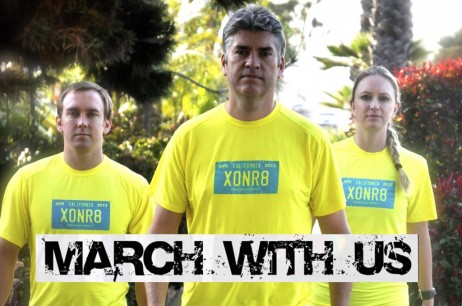Life of the Law is proud to feature contributions to our magazine from inmates at San Quentin State Prison. Today, Julian Glenn Padgett reports from inside.
Guy Miles is currently serving his sixteenth year in San Quentin but may be innocent, recent evidence suggests. Miles now awaits either of two events that could ensure his release—a court decision, or a review by California Governor Jerry Brown.
How does something like this happen? It boils down to something that comes up in criminal cases across America everyday. His case relied on eye witness testimony. And according to Miles and the Innocence Project attorneys representing him, the eyewitnesses were wrong.
Background of Miles’ case
On June 29, 1998, Miles was arrested for two counts of robbery, two counts of assault with a deadly weapon, and a gang enhancement. At his trial, “his alibi was really good. He had nine alibi witnesses,” says Alissa Bjerkhoel, an Innocence Project attorney. But the judge only allowed six of them to testify on the grounds that nine would be “cumulative,” or duplicative. According to Bjerkhoel, the three witnesses who were prevented from testifying weren’t friends of Miles—they were strangers with no stakes in the case’s outcome.
Miles was in Las Vegas, where he was living, when the crime occurred.
So how did they convict him?
The star witness, a woman named Trina Gomez, was unsure about her identification, according to Miles. “My attorney…asked her to come down from the stand to get a closer look. She walked toward me and asked me to turn around. She studied my face, body, hands and movements. Then she walked back to the witness stand, turned to the jury and stated, ‘I don’t think it’s him.'”
Then something even crazier happened—three men confessed. They said they committed the crime. But instead of dropping the case against Miles, the prosecution changed its theory. “This time,” Miles says, “they argued that I recruited other gang members to come forward and confess. That was absurd.” He didn’t know two of the men. And the eye witness who had previously identified Miles now said she identified one of the other men.
Miles says he was not, however, surprised when the Orange County jury returned with a guilty verdict.
“I had an all-white jury. It’s no secret that racial profiling is a huge problem in Orange County. It was more probable that I would be convicted than not.”
The California 12
In 2003, the California chapter of the Innocence Project took Miles’ case. In 2013, they went back to court. Bjerkhoel had been fighting for his freedom for more than a decade.
Miles, 48, is one of the California 12, a group of incarcerated people represented by the California Innocence Project. Last year, the project’s attorneys urged Governor Brown to grant clemency to him and the 11 others, arguing that evidence of their innocence was overwhelming. Bjerkhoel, along with director Justin Brooks and project member Michael Semanchik delivered the clemency petitions on foot in June 2013—they walked 712 miles over the course of 51 days to promote awareness of the mission.
Today, Miles is still waiting.
He maintains a positive attitude.
“As they say on the TV show Scandal, Alyssa Bjerkhoel is my gladiator. She’s my gladiator.”
Image: Members of the California Innocence Project marching.









